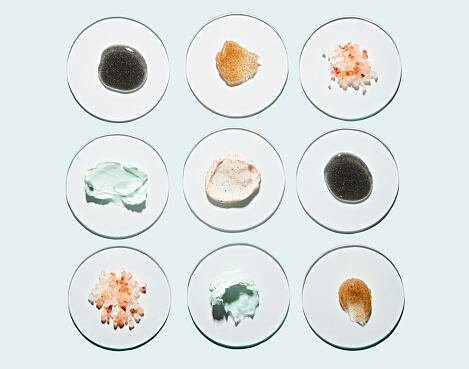While consumer cosmetics companies are increasingly advertising their sustainability to customers, Chris Sayner, vice president of Customer Alliances and Corporate Sustainability at Croda International, said much of the work of sustainability falls on ingredient suppliers.
Like the food industry, cosmetics products inherently come with a high level of transparency, as the ingredients in the items are on the packaging for customers to see. As consumer sentiment turns towards environmentally and socially conscious products, so do the questions companies ask of their suppliers.
In the past, consumer brands were asking if ingredients were animal, plant or petroleum based, but today Sayner said companies are asking if ingredients promote biodiversity, if they have at any point been involved in slave or child labor, if there is equitable profit sharing along the supply chain, and so on.
“That’s the level of detail that the ingredient industry is now charged with managing, as opposed to the simple question that used to be asked 20 to 30 years ago,” he said. “It’s because, as consumers, we have an increasing appetite for knowing what the ingredients in our favorite brands are, where they come from, what they’re made of, and preferably having a positive impact.”
Sayner said over a period of about 10 years, as consumer brands began to ask more questions about the origins of ingredients, Croda was able to slowly go to raw material suppliers and build up a data base of information.
Additionally, the company was able to identify raw material suppliers who were unwilling to be transparent on the issues consumer brands needed, and cut ties with them.
Marketing manager at Croda Emily Heward said while the relationship between raw material suppliers, ingredient supplies and consumer brands has always been based on a level of integrity, in order to meet current consumer demands they’re being asked to describe what that means in terms of ingredient sourcing and manufacturing.
“It’s that search for knowledge, but it’s also holding people accountable,” she said. “You have to have trust within your supply chain in order to meet the demands of not just the industry, but the planet. We’re in it together and the relationship has to be based on trust.”
Part of that relationship often included NGOs, which identify raw materials with environmental or social issues and bring those issues to the industry’s attention, which Sayner said is almost always responded to.
An example of this dynamic came with palm oil, he said.
According to the World Wildlife Federation, conversion of tropical rainforest to palm oil planation has “devastating impact on a huge number of plant and animal species,” and often includes a ‘slash-and-burn’ technique. When NGOs began pushing for consumer industries to not stop using palm oil, put ensure the palm oil in use was being responsibly sourced, personal care products had to act, Sayner said.
While most cosmetics use palm oil, he said the industry is a relatively small portion of its consumers next to food products. In order to ensure responsible sourcing and transparency for cosmetics brands, major companies like P&G, Johnson and Johnson, L’Oréal and others created a coalition with Business for Social Responsibility in the US and Transitions in Europe to source palm together.
Sayner said he calculated personal care consumes around 2% of the world’s palm output, but by sourcing the raw material through a coalition they were able to create leverage and streamline the process for suppliers, as they only had to communicated transparency information to BSR and Transitions.
Beyond simply communicating with raw material suppliers, Sayner said Croda also engaging in third-party sustainability certifications, include ones for castor oil and its derivatives, carbon, ethical bio-trade and other raw materials. The certifications help sidestep greenwashing, or making unsubstantiated or uncertified sustainability claims, and provide clear information to consumer brands.
As consumers continue to lean into sustainability, transparency and ethically sources products, Heward said it’s important for companies to engage in the conversations in industry. At Croda, she said the transition to a more detailed approach to ingredient sourcing was not as hard as it could have been because the company had always in been interesting in being involved in the discussions and solutions.
“It’s not waiting for the outcomes, it’s not waiting until decisions have been made," she said. "We’re happy to be involved in discussions, partner with associations, partner with out suppliers, to ensure that we are holding them to the highest standards. If you’re part of the conversation, you’re also part of the decision.”




